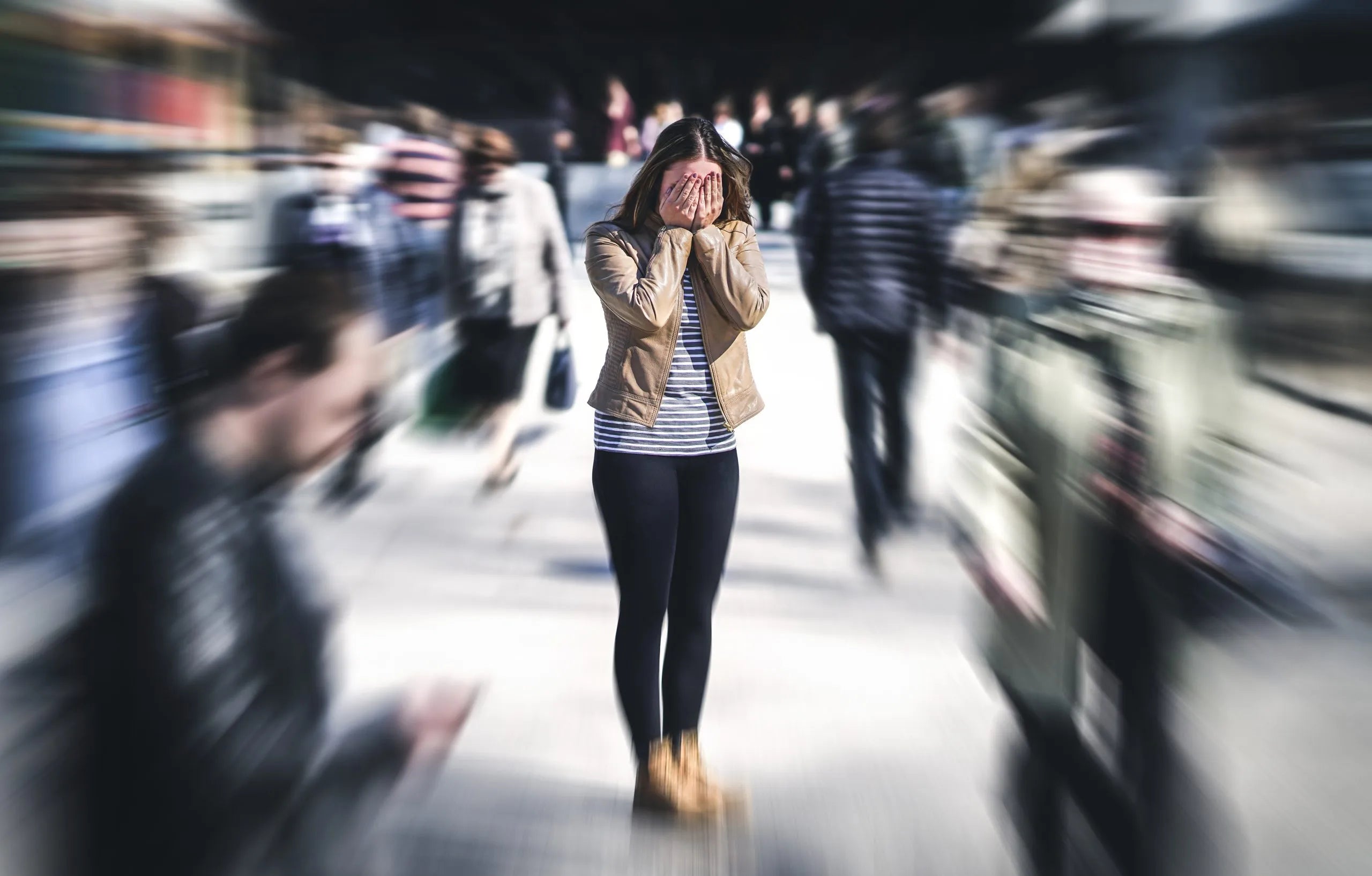It's the holiday season, but instead of joy, you're wrapped in a blanket of dread. Your heart races, sleep evades you, and even simple tasks feel overwhelming. You might be experiencing anxiety symptoms, and you're not alone.
Millions grapple with these feelings, especially during stressful times. Understanding these symptoms is the first step toward reclaiming your peace.
What Are Anxiety Symptoms?
Anxiety symptoms manifest differently in everyone. Some experience a constant, low-level hum of worry, while others face sudden, intense panic attacks.
Many experience a mix of physical and psychological symptoms. Understanding these can help you manage anxiety disorders better.
Physical Anxiety Symptoms
Physical anxiety symptoms often mimic other health problems. This sometimes leads to unnecessary tests and procedures. Recognizing them as anxiety-related can be a relief.
Here are a few symptoms according to Mayo Clinic:
- Pounding heart.
- Rapid breathing.
- Sweating.
- Trembling or shaking.
- Feeling weak or tired.
- Unexplained aches and pains.
- Muscle tension.
- Stomach upset or nausea.
Psychological Anxiety Symptoms
Psychological anxiety symptoms are less visible but equally disruptive. They impact thoughts, behaviors, and emotional well-being.These symptoms can lead to noticeable issues at work and in relationships.
WebMD shares a list of psychological symptoms:
- Excessive worry or fear.
- Restlessness.
- Irritability.
- Difficulty concentrating.
- Feeling on edge or overwhelmed.
- Anticipating the worst.
Anxiety Disorders vs. Depression
Anxiety and depression are distinct mental health conditions, yet they often coexist and share some symptoms like changes in mood, sleep, appetite, and energy levels. Still, they have key differences.
Those suffering from anxiety disorders may experience a variety of psychological symptoms. They also may also easily develop depression.
Anxiety disorders typically involve heightened worry and fear, often linked to specific triggers or generalized concerns. It is future-oriented, with individuals feeling tense, on edge, or anticipating potential threats or negative outcomes.
In contrast, depression centers on a persistent sense of sadness, hopelessness, and a loss of interest in activities that once brought joy. Depression is more focused on the past or present, accompanied by feelings of worthlessness or emptiness.
The emotional experiences of these conditions also differ. Anxiety evokes
apprehension and physical hyper-arousal, characterized by racing thoughts and restlessness.
Meanwhile, depression fosters emotional numbness or despair, frequently tied to low self-esteem and withdrawal from social interactions.
Physically, the symptoms of anxiety disorders and depression diverge as well. Anxiety is often marked by rapid breathing, a pounding heart, sweating, and muscle tension, all driven by the body’s heightened "fight-or-flight" response.
Depression, on the other hand, is linked to fatigue, slowed movements, changes in appetite, and chronic aches or pains, reflecting a state of low energy and diminished motivation.
Behaviorally, anxiety disorders may drive individuals to avoid certain situations or seek constant reassurance due to fear of specific outcomes.
In contrast, depression often results in social withdrawal and a lack of motivation to engage in even basic daily activities, stemming from a pervasive loss of interest or energy.
Despite these differences, anxiety disorders and depression frequently occur together, creating a complex interplay of symptoms.
For example, chronic anxiety can lead to depression due to the exhausting nature of constant worry, while depression can bring about anxiety rooted in feelings of inadequacy or fear of failure.
The triggers for these conditions further highlight their distinctions. Anxiety disorders are often tied to specific events or situations, such as stress about an upcoming presentation or financial concerns.
Depression, however, may arise from prolonged stress, a traumatic event, or underlying biological factors, even in the absence of clear external triggers.
Understanding these nuanced differences is crucial for identifying symptoms and seeking appropriate treatment.
Examining these factors can offer insight into which condition you may be facing, whether it be generalized anxiety disorder, obsessive-compulsive disorder, separation anxiety disorder, social anxiety disorder, panic disorder, or something else.
Generalized Anxiety Disorders
Generalized anxiety disorders involve persistent, excessive worry about everyday situations, often without a clear cause.
It can lead to physical symptoms like fatigue, muscle tension, and insomnia, alongside psychological effects such as restlessness and difficulty concentrating. This chronic condition can disrupt daily life, making effective management essential.
Obsessive-Compulsive Disorders
Obsessive-compulsive disorder (OCD) is a source of anxiety, driven by persistent, unwanted thoughts (obsessions) that lead to repetitive behaviors (compulsions) meant to relieve that anxiety.
Despite efforts to ignore these thoughts, they continue, fueling the cycle of compulsive actions. OCD often centers on specific fears, like contamination, leading to behaviors such as excessive handwashing.
While it can cause shame and frustration, effective treatment like cognitive behavioral therapy is available to manage both the anxiety disorders and compulsions.
Separation Anxiety Disorders
Separation anxiety disorders involve intense fear or distress when separated from loved ones or home. Common in children but also affecting adults, it can cause excessive worry, clinginess, and physical symptoms like nausea or headaches.
This can make daily life and relationships challenging, but with the right support and care, it’s manageable.
Social Anxiety Disorders
Social anxiety disorders are marked by an intense fear of being judged or humiliated in social situations, leading to avoidance or significant distress.
This fear often interferes with daily activities, relationships, and confidence. With understanding and the right strategies, it’s possible to manage and overcome these challenges.
Panic Disorders
Panic disorders involve recurring panic attacks, which are sudden and intense episodes of fear or discomfort that can feel overwhelming.
These episodes, sometimes referred to as anxiety attacks, may include symptoms like chest pain, shortness of breath, and dizziness. The fear of having future attacks often affects daily life, but effective treatment can help manage the condition.
Holiday Anxiety
Many individuals experience excessive anxiety during the holidays. Social and familial expectations often rise during this time.
Factors like social pressures, financial strain, and a crazy amount of activity with too many social engagements add to the season's regular stressors. This can have a significant negative impact on well-being.
Individuals might encounter specific phobias or intense fear related to social interactions or performance expectations.
Managing holiday anxiety involves recognizing triggers, setting realistic expectations, and prioritizing self-care. Recognizing and mitigating symptoms such as trouble sleeping and concentrating are key.
Risk Factors
Risk factors for anxiety disorders include genetic predisposition, a history of posttraumatic stress disorder (PTSD), or chronic stress from events like financial strain or relationship issues.
Certain personality traits, such as shyness or perfectionism, and imbalances in brain chemistry, also increase the likelihood of developing anxiety.
Additionally, underlying health conditions and co-occurring mental disorders can contribute to its onset. Recognizing these factors helps in understanding and managing anxiety effectively.
Lifestyle Ways to Address Anxiety Symptoms
Consult a medical or psychological professional for recurring and intense anxiety. Consider adopting healthier lifestyle habits for managing anxiety symptoms.
The following lifestyle changes are medically reviewed and approved for treating and alleviating anxiety:
1. Regular exercise: Physical activity, even just 30 minutes a day, can significantly decrease anxiety symptoms. Exercise stimulates the relaxation response and improves overall health. Find an enjoyable activity and do it regularly.
2. Mindfulness and meditation: Engaging in mindfulness practices or meditation can alleviate anxiety and ground individuals in the present moment. These practices affect physiological processes, minimizing negative reactions. View mindfulness as a daily routine, focusing on immediate sensations.
3. Sleep hygiene: Lack of sleep can increase anxiety. Maintain consistent sleep patterns by going to bed and waking up around the same time each day. Avoid screen time before bed. Consistent, quality rest can greatly reduce anxiety.
4. Healthy diet: Stress can disrupt healthy eating habits. Sugary foods release hormones that trigger anxiety. A balanced diet supports both physical and psychological well-being. Avoid excessive intake of fatty foods, as these can increase physical ailments linked to stress and anxiety disorders.
5. Sunshine: Even though it may be cold outside, getting out in the sunshine can do you a world of good. You're unlikely to get any vitamin D when you're outside wearing a parka, but the sun hitting your eyes can boost your mood and allow you to take a deep breath.
6. Support groups: Support groups can be a powerful resource for managing anxiety. Sharing experiences with others who understand what you’re going through fosters a sense of connection and reduces feelings of isolation. These groups also offer practical tips and encouragement, helping you stay motivated to incorporate healthy habits like exercise, mindfulness, and maintaining a balanced routine into your daily life.
5 Ways to Address Holiday Stress
It's helpful to recognize that you only have 24 hours per day, just like everyone else. That said, here are some ways to help you navigate the holidays with less stress.
1. Set priorities. You may have to say "no" to some things, and that's okay.
Make your list of holiday priorities and rank them in order of priority.
2. Simplify. Cut back on all-out plans. Ask others to bring dishes to family events. Consider smaller, more intimate plans instead of large events that'll stress you out.
3. Adjust expectations. Life isn't perfect. So why expect the holidays to be so? Set realistic expectations and let the rest go.
4. Schedule your time reasonably. You don't need to do everything. There's always next year.
5. Set financial boundaries. Set a holiday budget and stick to it.
Consider shared experiences instead of expensive gifts. Don't try to impress. Make it about relationships, not the expense of the gifts.
Anti-Anxiety Supplements
Certain supplements show promise in reducing anxiety symptoms for some people.
These should not replace professional medical advice, so talk to your healthcare provider about which supplements could potentially benefit your physical health and wellness. Certain supplements are known for their anti-anxiety effects:
- Magnesium. Magnesium plays a key role in your body's stress response. Research shows it can benefit people with stress disorder and anxiety. A 2017 study showed that taking 248 mg of magnesium for just 6 weeks significantly improved symptoms of anxiety and depression.
- Vitamin D3 & K2. Many people have sub-optimal levels of vitamin D3 -- a fat-soluble vitamin involved in brain function and mood regulation. A 2020 study of just 1600 mg of vitamin for 6 months led to a significant improvement in anxiety symptoms. Vitamin D3 should be taken with K2.
- Chamomile. An herb known for its calming properties and available in tea. Those who are pregnant or have ragweed allergies should avoid chamomile.
- Omega-3 fatty acids. Offers anti-inflammatory effects that can help relieve anxiety symptoms in those taking more than 2,000 mg per day.
- Curcumin. Curcumin has potent healthy inflammation and antioxidant effects. Curcumin has been shown to support brain and mood in obese and diabetic patients. UltraCur™ curcumin is a proven, highly absorbable form of curcumin.
Conclusion
You're not alone if you struggle with anxiety symptoms, especially over the holidays. Various treatments exist, thanks to ongoing research and brain health. Healthy lifestyle adjustments can reduce the impact of anxiety symptoms and stress.
Don't let anxiety control your life. Incorporate healthy practices for emotional balance and reduced stress, particularly during the challenging and busy holiday season.
Seek support from a health care provider who can offer a path to regaining joy and peace, during the holidays and beyond.

FAQs
What are some ways to reduce stress and anxiety during the holidays?
Set realistic expectations, prioritize your time, and simplify plans to avoid feeling overwhelmed. Practice self-care, stick to a budget, and focus on meaningful connections rather than perfection.
What is the difference between anxiety and depression?
Anxiety involves excessive worry and fear, often about future events, while depression is marked by persistent sadness, hopelessness, and a lack of interest in activities. Although they can overlap, they differ in focus, symptoms, and triggers.
What are some helpful supplements to reduce anxiety?
Supplements like magnesium, chamomile, omega-3 fatty acids, vitamin D3, and curcumin may help reduce anxiety symptoms. Consult a health care provider to determine the best options for your needs.


Share:
Harnessing Brain Plasticity for Enhanced Health After 40
Exploring Natural Remedies for Depression: What Works?